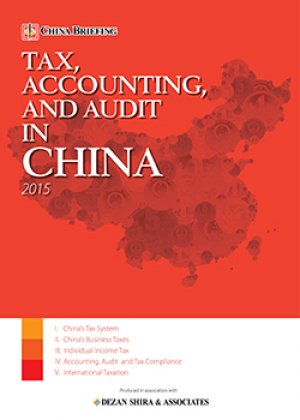The Importance of Chinese Fapiaos When Doing Your Accounts
By Cory Lam
 SHANGHAI, Feb. 21 – A fapiao in China is more than just an ordinary receipt. Contrary to other countries, where receipts are usually just used to record a transaction, in China it is also the way in which the government monitors the value added tax (VAT) paid on any transaction. Therefore, even for the most mundane tasks, like riding a bus for example, a fapiao should always be provided, or at least be available, at the customer’s request.
SHANGHAI, Feb. 21 – A fapiao in China is more than just an ordinary receipt. Contrary to other countries, where receipts are usually just used to record a transaction, in China it is also the way in which the government monitors the value added tax (VAT) paid on any transaction. Therefore, even for the most mundane tasks, like riding a bus for example, a fapiao should always be provided, or at least be available, at the customer’s request.
Fapiaos can mainly be sorted into two categories – general invoices and VAT invoices. Although the two are often used interchangeably, there are notable differences between the two that consumers should be aware of. Firstly, the latter can be used for tax deduction purposes, while the former cannot. Secondly, as the VAT invoice is used for tax deduction purposes, it will contain a lot more detail with respect to the trader’s information, including tax number, address, telephone number, bank account information, and other such information. Lastly, the purchase amount on a VAT invoice is usually explicitly broken down into its non-tax and tax components, while the amount shown on the general invoice is usually a tax-inclusive figure. It is therefore important to check with your accountant with regards to which type of invoice you need according to the purpose intended.
![]() RELATED: Analyzing Chinese Financial Reporting
RELATED: Analyzing Chinese Financial Reporting
All invoices are reportable to the local tax authority. Whether a fapiao has been computer generated (like those printed for in-shop payments of mobile phone bills) or comes in the fixed amount prepaid format (like those you get in restaurants), it would have previously been issued by the local tax authorities. For example, machines for printing computer generated fapiaos can only be bought from the local tax authority, and only registered businesses will be able to purchase the standard fixed amount invoices. This ensures that all fapiaos are standardised, making it easier for administration and fraud protection purposes.
For the common consumer spending money in China, fapiaos can be used as valid proof of expenditure in the case where one might need to reclaim any expenses made, i.e. on a business trip. Sometimes foreigners are also required to provide a fapiao from your rented or purchased accommodations as proof of residency for visa purposes. It should, however, be noted that in China the responsibility to obtain a fapiao lies with the consumer as this will not always be provided freely, if at all, by the provider. For transactions of smaller amounts, retailers may offer a small discount or free giveaways in exchange for not providing a receipt. This way they would not have to declare the sale officially and effectively would avoid paying VAT on the transaction. However, by law all businesses are required to produce a receipt at the customer’s request at the time of purchase. According to a spokesman of the Hubei local tax authorities, in the case where a business owner is unable to produce a valid invoice, the customer has the right to refuse payment on the spot as well as to report them to the authorities by dialing 12366 – the national tax authorities’ helpline.
![]() RELATED: Preferential Tax Policies for China based SMEs to Continue
RELATED: Preferential Tax Policies for China based SMEs to Continue
To combat the recent increase in counterfeit invoicing crimes, the government has revamped the current general invoice system, with the new general invoice format coming into effect from January 1, 2011. The new system is designed to promote greater usage of these invoices, firstly by simplifying the types of invoices in the system, and secondly by widening the scope for winning prize monies via the scratch card panels on the invoices themselves to encourage more consumers to request fapiaos after purchases. Furthermore, consumers can now verify whether an invoice is genuine by simply contacting the above-mentioned helpline or by checking the invoice’s unique barcode against records at www.chinatax.gov.cn.
Fapiaos are accordingly very important as manually time consuming receipts that need to be carefully monitored when preparing corporate petty cash or accounts. Misuse is rife in China, and staff submitting fapiaos for expense claims should be fully aware of what is and what is not an acceptable fapiao to support expenses to the accounts department. Additionally, during bookkeeping procedures, fapiaos should be carefully examined for legitimacy so as not to cause problems during end of year audits. Fapiaos do state what the service/product purchased was and this should match with the related entry in the company accounting books. Incorrectly identifying fapiaos and re-booking expenses into corporate accounts is a time consuming and expensive (you don’t want external accountants spending hours correcting fapiao entries), so it makes sense to have them well prepared with accurate internal bookkeeping procedures from the outset. Lax use of fapiaos when being booked into accounts makes for headaches later on.
|
Asia Briefing Ltd. is a subsidiary of Dezan Shira & Associates. Dezan Shira is a specialist foreign direct investment practice, providing corporate establishment, business advisory, tax advisory and compliance, accounting, payroll, due diligence and financial review services to multinationals investing in China, Hong Kong, India, Vietnam, Singapore and the rest of ASEAN. For further information, please email china@dezshira.com or visit www.dezshira.com. Stay up to date with the latest business and investment trends in Asia by subscribing to our complimentary update service featuring news, commentary and regulatory insight. |
![]()
 Tax, Accounting, and Audit in China 2015
Tax, Accounting, and Audit in China 2015
This edition of Tax, Accounting, and Audit in China, updated for 2015, offers a comprehensive overview of the major taxes foreign investors are likely to encounter when establishing or operating a business in China, as well as other tax-relevant obligations. This concise, detailed, yet pragmatic guide is ideal for CFOs, compliance officers and heads of accounting who must navigate the complex tax and accounting landscape in China in order to effectively manage and strategically plan their China operations.
 Annual Audit and Compliance in China In this issue of China Briefing, we discuss annual compliance requirements for foreign-invested enterprises, including wholly-foreign owned enterprises, joint ventures and foreign-invested commercial enterprises, as well as the less demanding requirements for representative offices. We also highlight the most recent tax and legal changes that will significantly influence the way companies do business in China in 2014.
Annual Audit and Compliance in China In this issue of China Briefing, we discuss annual compliance requirements for foreign-invested enterprises, including wholly-foreign owned enterprises, joint ventures and foreign-invested commercial enterprises, as well as the less demanding requirements for representative offices. We also highlight the most recent tax and legal changes that will significantly influence the way companies do business in China in 2014.
- Previous Article China Briefing – Meet the Editorial Team
- Next Article China Experiences M&A Boom During 2006-2010









